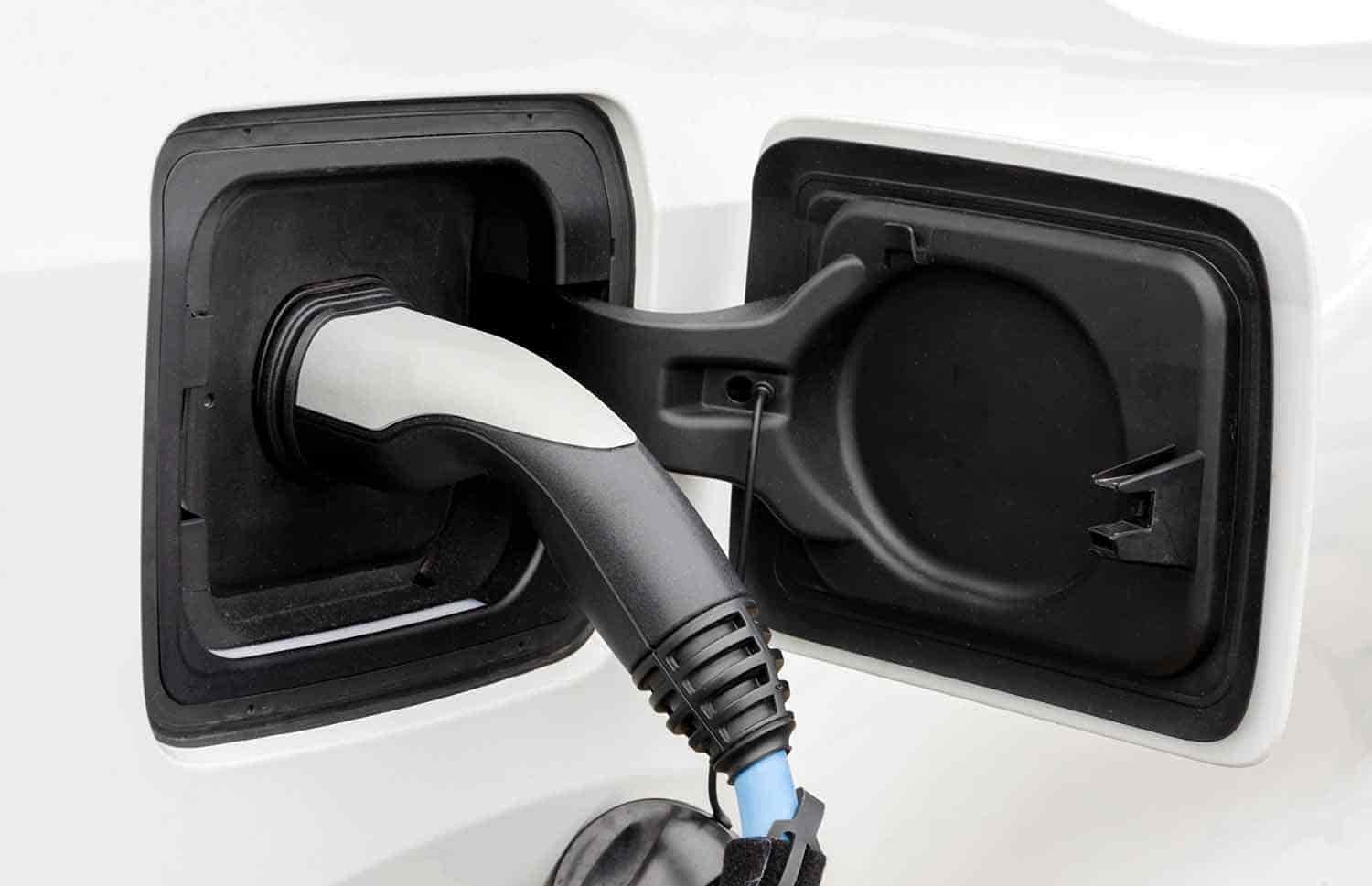
27 Aug How Far Can an Electric Car Go On One Charge?
Electric vehicles came into play to help save the environment from more pollution caused by gasoline cars. These cars overall cost less than gas-powered vehicles because they have few moving parts, which prevent a lot of money from going into service and maintenance, and they also cost way less compared to what you’ll use on fuel.
Most electric cars can travel between 125 miles to 517 miles or more, depending on the model. At first, when electric vehicles came into play between the years 2011-2016, they were only capable of driving 100 miles before they needed to recharge.
Back then, having an electric car was a bit convenient when it came to charging. But right now, with newer models that take less time to charge and more miles on the same charge, they keep getting better and better and might soon overtake gas-powered vehicles.
As newer EVs come out, they keep getting better, covering more miles on a single charge and sleeker. Most of the latest models have a certain level of self-drive and improved sleekness, interiors.
The 5 Electric Cars that go the farthest on a single charge?
Different vehicles vary when it comes to how long they can maintain their charge and mileage. The car model and company make those two aspects vary profusely. The newer models of EV cars come out, each one of them covering more miles on a single charge than the previous one. So every time you need an EV covering more miles, check out the latest model and compare it with the earlier model.
1. Tesla Model S Long Range- 412 Miles
A Tesla Model S can go up to 412 miles on a full charge. It is the fastest electric car at the moment in the market. It can shift from 0-60mph in 3.1 seconds. That is as fast as a Lamborghini Urus.
Tesla has just updated Model S and Model X to increase its mileage with the same charge. Although Tesla public chargers have been installed almost everywhere on the road, it’s a fast charger letting you get back on the road within no time.
The Model S is luxurious and can fit five adults, and has autopilot driver assistance features that will make you change your notion of electric vehicles.
2. Ford Mustang Mach-E- 379 Miles
The Ford Mustang Mach-E has an estimated range of between 211 and 379 miles. The range depends on the battery pack and the type of electric motors. Each model comes with a fast-charging capability.
If you take the rear-wheel-drive version, you will have an 88kwh battery that is bigger and will reach 379 miles between plugins. The rear-wheel-drive Mustang Mach-E has a standard 68kWh battery and goes 230 miles, while the all-wheel-drive drains more energy reducing it to 211 miles.
The inside of the car allows for maximum cargo and passenger space. It can carry up to five people making it a good option for families to use.
3. Tesla Model 3- 360 Miles
The model 3 is an affordable, classy tesla, and it comes in various versions. But if you’re a person who moves around a lot, then you’ll need the Long Range Plus. It has an 83kWh battery and can go up to 360 miles on a full battery’s charge.
Its price is very affordable and has made headlines in the U.K as the top-selling car. This model has a better interior design with two wireless charging pads. It has a new heat pump that consumes little energy.
The Tesla Model 3 offers luxury and performance, also offering autopilot self-driving software. Very few competitors can offer self-driving software as good as this one. It can accelerate from 0-60mph in 3.2sec.
Just like every other EV Tesla has released, this one comes with elegance, class, and is powerful.
4. Chevrolet bolt- 259 Miles
The Chevrolet Bolt has a tech-focused interior, and its general style has undergone a drastic improvement. Alongside the style and interior, the safety and connectivity of this model are an improvement from the previous ones. The Chevrolet can go for 259 miles on a full charge.
The new Chevrolet improved model has more leg-room for the rear passenger seat, offering more comfortability. The new charging cord available on the Bolt EV allows for plugging at a regular home outlet that gives 120 volts and 240 volts at a level charging point for up to 7.2 kW.
5. Hyundai Kona Electric- 258 Miles
The Hyundai Kona electric can go up to 258 miles on a single charge. It has an unbeatable 10-year warranty for a 100,000-mile warranty that covers both the battery and power train.
The car has features that make it easy to drive and park, reducing the driver’s stress. There have been improvements on the Kona EV that make it easy to handle and improve its quality. The new, improved version has a unique acoustic windshield that glass and extra insulation reduce harshness, noise, and vibration.
The model has more legroom for the backseat passenger, and although it has these remarkable qualities, it’s better suited for driving in the suburbs and not long road trips with your family on board.
Can I install an EV charger at home?
When browsing EVs, you might be wondering whether it’s possible to charge your car at home for convenience. Charging your car at home might take more hours than in public places, but it will give your vehicle enough charge to do your daily errands. Most people charge their cars overnight so they can be fully charged the next day when using them.
You can charge your EV at home, anyone’s home to be exact. Every EV car has a system that allows you to charge your vehicle at any regular outlet, including your home. The only downside to this is that most home electric systems can only produce 120 volts. This means that it will definitely take a lot of time to charge your car fully.
When you purchase your EV, you are likely to get a level 1 charger with it. The design of this charger is for a regular outlet that emits 120 outlets. To charge your car at home with the level 1 outlet doesn’t require you to change your electrical system. Your role is to plug it in.
A level 1 charger provides four to five hours of range per hour charged. So if you don’t travel that many miles per day, this amount of power could be enough for you.
If you must travel long distances daily, you might need a level 2 charging outlet that emits more kilowatts and charges it faster. Charging at home with a higher level voltage outlet adds more miles to your EV while reducing the charging time.
If you charge your EV for eight hours overnight, you will get around thirty-six to forty miles. If you don’t cover too many miles a day, that amount of charge would be more than enough. But if you need more charge, you could install a level 2 outlet that allows you to gain more charge for half the time a level 1 takes.
To charge your EV at home, you’ll need a dedicated charging point installed by professionals. Your electrician will install the charging point in a convenient spot where you park your car indoors in your garage. If you don’t have garage space and park your EV outside, you might be at a disadvantage.
Having a dedicated charging point at home ensures that it’s faster and safer for your car. A dedicated charging point at home will need to be installed by a professional.
When installing a charging point at home, you might decide to have a level 1 or level 2 charger. The two chargers have a difference in installation price because the level 2 charger requires your whole electrical system to be changed so that it can offer more power and fast charging.
Cost of installing a home EV charger
When you buy an electric car, you qualify for the OZEV government grant. When you want to install the grants could help make it cheaper. You can check if that’s possible to access in your area as it will save you a lot of money.
There are many thoughts to keep in mind regarding the price of installing an EV charger at home, including the type of charging system, whether level 1 or 2.
The price will depend on your location, whether it’s portable or hardwired. Averagely, it could cost you between $1000 and $2500 to install a charging port at home. Most people installing a 240-volt outlet pay an average of $1200.
If you need a level 2 outlet for two cars, it could be on the higher side, costing you around $4500 and providing 240 volts. Generally, the installation price could vary from as low as $300 to as much as $4500.
Final Words
With improvement in technology, EVs are the next big thing. There aren’t as many public EV charging areas yet, but as more EVs get produced, these charging areas keep increasing.
But either way, you can charge your EV at home or in those public areas. Having a designated charging area at home in your garage can help you save on money used in charging your EV in public.
Each model of car that comes out has a higher mile range than the previous car and a bigger battery capacity. This battery capacity allows the vehicle to go for more miles and be durable.
The vehicles being released in 2022 and 2023 will cover up to 500 miles on a single charge. Meaning that soon, all EVs will be more suitable for long-distance travel.
Also, as more people own EVs, charging ports for these electric cars will keep increasing and offering fewer charging times, and soon it will be the same as putting gas into your vehicle.
It is possible to have a charging port at home for your EV if you so desire. You can have a level 1 or level 2 charger installed in your home to charge your EV conveniently.
Most level 3 chargers are for commercial use only. If you only go for a few miles every day to the grocery store and work, a level 1 charger might be all you need in your garage.
But if you cover long ranges and you might not have enough time to charge for hours, you might need to install a level 2 charger.
